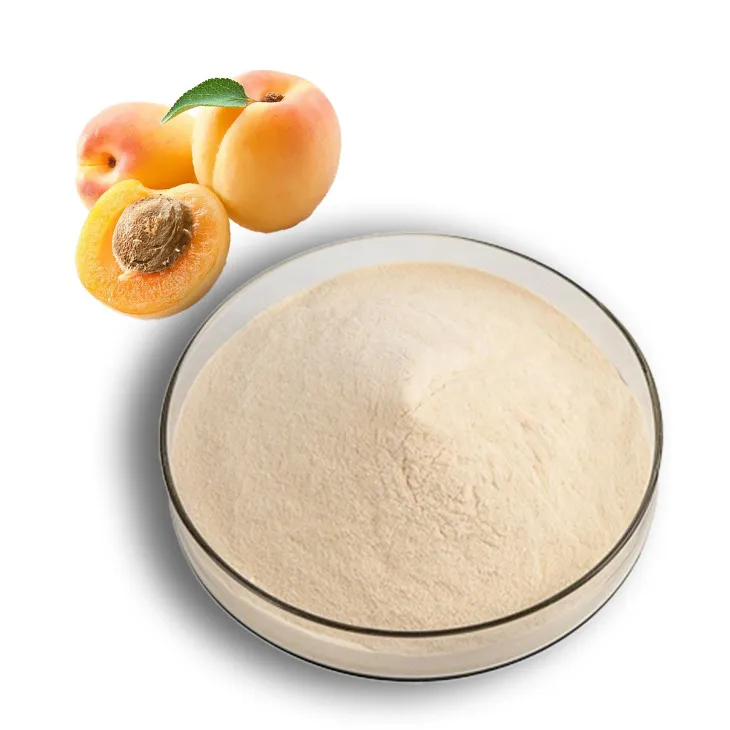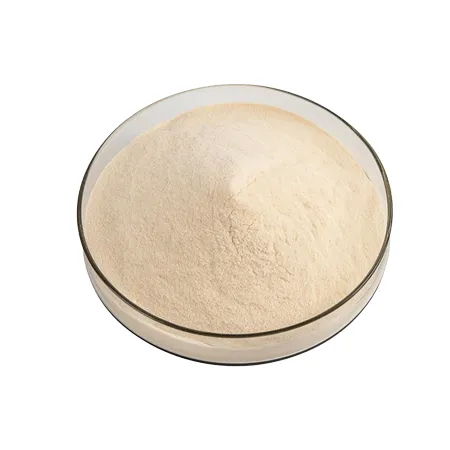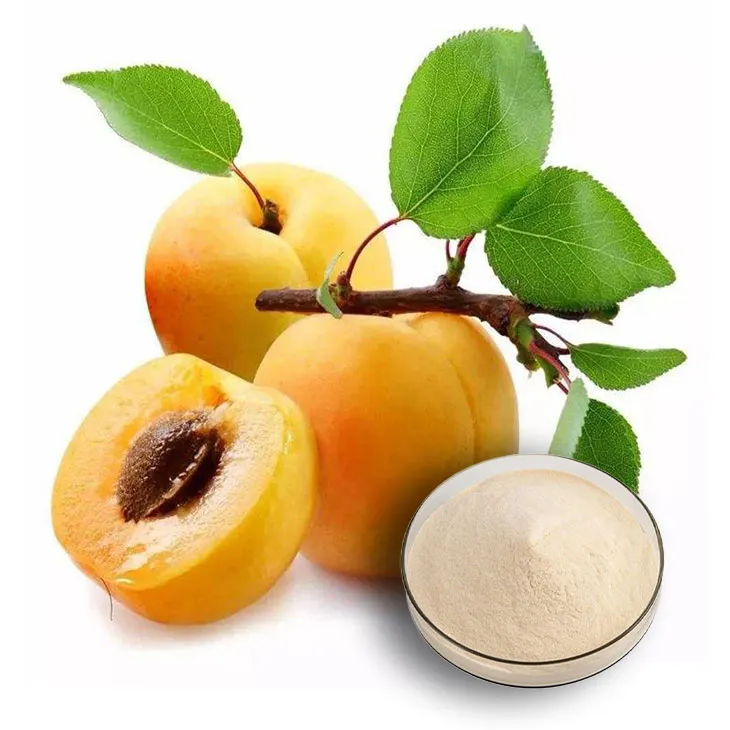- 0086-571-85302990
- sales@greenskybio.com
Chinese Apricot Powder Factory.
2024-12-01

1. Introduction to the Importance of Chinese Apricot Powder Factories
China's Apricot Powder factories are of great significance in the food industry. Apricot Powder, as a highly favored ingredient, has found its way into a wide array of products. It is commonly used in baked goods such as cakes, pastries, and bread. In the realm of beverages, apricot - flavored drinks, smoothies, and even some coffee blends often incorporate apricot powder for added flavor. Additionally, in the world of confectionery, candies, chocolates, and gummies may also contain this ingredient to enhance taste and texture.

2. Advanced Production Technologies in Chinese Apricot Powder Factories
These factories are equipped with state - of - the - art production technologies to ensure high - quality output. Modern machinery is used for every step of the production process. For instance, in the initial stage of processing, advanced cleaning and sorting machines are employed to remove any impurities from the apricots and separate the good ones from the defective ones.
When it comes to grinding the apricots into powder, high - precision grinding mills are used. These mills are capable of producing a fine and consistent powder texture. Moreover, in the drying process, modern drying equipment is utilized to ensure that the moisture content of the apricot powder is precisely controlled, which is crucial for maintaining its quality and shelf - life.

3. Sourcing of Apricots for Apricot Powder Production
Chinese apricot powder factories source apricots from reliable suppliers, both domestic and international. Domestic sourcing has the advantage of shorter supply chains and potentially fresher products. Many regions in China are rich in apricot cultivation, such as Xinjiang, which is known for its high - quality apricots. Factories in close proximity to these apricot - growing areas can easily obtain fresh apricots.
On the other hand, international sourcing allows factories to access different varieties of apricots. Some countries may have unique apricot cultivars that can bring novel flavors and characteristics to the apricot powder. However, international sourcing also comes with challenges such as import regulations, transportation costs, and ensuring the quality of the apricots during long - distance shipping.

4. Quality Control in Chinese Apricot Powder Factories
Quality control is a top priority in these factories. Rigorous testing procedures are carried out at every stage of production, starting from the selection of apricots all the way to the final packaging of the apricot powder.
4.1 Apricot Selection
When selecting apricots, trained personnel carefully examine each fruit. They check for factors such as ripeness, size, and absence of diseases or pests. Only apricots that meet the strict quality criteria are accepted for further processing.
4.2 Processing Stages
During the processing stages, samples are regularly taken for analysis. For example, in the grinding process, the particle size of the apricot powder is measured to ensure it meets the desired fineness. In the drying process, the moisture content is continuously monitored to prevent over - drying or under - drying.
4.3 Final Packaging
Before the apricot powder is packaged, final quality checks are performed. The powder is tested for its purity, flavor, and nutritional content. The packaging materials are also carefully selected to ensure they protect the product from moisture, air, and light, which could otherwise degrade the quality of the apricot powder.
5. Innovation in Chinese Apricot Powder Factories
Many Chinese apricot powder factories are constantly innovating. They are exploring new production methods to improve efficiency and reduce costs.
5.1 Efficiency Improvements
One way of improving efficiency is through process automation. By automating certain steps in the production process, such as the sorting and packaging of apricot powder, factories can reduce labor costs and increase production speed. For example, automated sorting machines can quickly and accurately separate apricot powder based on particle size or quality, which is much faster than manual sorting.
5.2 Cost - Reduction Strategies
Factories are also looking for ways to reduce costs. This includes optimizing the use of raw materials. For instance, they are exploring ways to utilize more of the apricot, including the by - products of apricot processing. By finding new uses for these by - products, factories can reduce waste and potentially lower the cost of production.
5.3 New Product Development
In addition to process improvements, Chinese apricot powder factories are also developing new flavors and types of apricot powder to meet the diverse needs of consumers in both domestic and international markets.
- Flavor Innovations: Some factories are experimenting with adding other natural flavors to apricot powder, such as vanilla, cinnamon, or honey. These new flavor combinations can appeal to a wider range of consumers. For example, apricot - honey powder can be used in products targeted at consumers who prefer a sweeter taste.
- Type Innovations: There are also efforts to develop different types of apricot powder. For example, some factories are producing organic apricot powder to meet the growing demand for organic products. Others are creating apricot powder with added nutritional supplements, such as vitamins or minerals, to target health - conscious consumers.
6. Market Expansion and Competitiveness of Chinese Apricot Powder Factories
With their continuous innovation and high - quality products, Chinese apricot powder factories are well - positioned to expand their markets both domestically and internationally.
6.1 Domestic Market
In the domestic market, the demand for apricot - related products is growing steadily. As consumers become more health - conscious and interested in trying new flavors, apricot powder is finding its way into more and more food products. Chinese apricot powder factories are capitalizing on this trend by promoting their products through various marketing channels, such as food exhibitions, online platforms, and partnerships with food manufacturers.
6.2 International Market
On the international front, Chinese apricot powder has the potential to gain a significant market share. China has a long - standing reputation for high - quality food products. The unique flavor and nutritional value of apricot powder can attract international consumers. However, to succeed in the international market, Chinese factories need to overcome challenges such as meeting international food safety standards, adapting to different cultural tastes, and competing with local and international producers.
7. Environmental Considerations in Chinese Apricot Powder Factories
In recent years, environmental considerations have become increasingly important in the operations of Chinese apricot powder factories.
7.1 Sustainable Sourcing
As mentioned earlier, many factories are focusing on sustainable sourcing of apricots. This includes promoting organic farming methods among domestic suppliers and ensuring that international suppliers follow sustainable agricultural practices. By doing so, they can reduce the environmental impact of apricot cultivation, such as soil degradation and water pollution.
7.2 Energy Efficiency
Factories are also looking at ways to improve energy efficiency in their production processes. This can involve using energy - efficient machinery, optimizing production schedules to reduce energy consumption during peak hours, and investing in renewable energy sources such as solar or wind power. For example, some factories are installing solar panels on their rooftops to generate electricity for part of their operations, reducing their reliance on traditional energy sources.
7.3 Waste Management
Effective waste management is another key area. Apricot processing generates waste such as apricot pits and skins. Factories are exploring ways to recycle or reuse these waste products. For instance, apricot pits can be processed into bio - fuels or used in the production of handicrafts, while apricot skins can be used to extract natural dyes or added to compost.
8. Conclusion
Chinese apricot powder factories play a crucial role in the food industry. Through advanced production technologies, strict quality control, continuous innovation, and growing environmental awareness, these factories are not only producing high - quality apricot powder but also positioning themselves for long - term success in both domestic and international markets. As consumer demands continue to evolve, these factories will need to keep adapting and innovating to stay competitive and contribute to the growth of the apricot - based food product sector.
FAQ:
What are the main applications of almond powder produced in Chinese factories?
Almond powder produced in Chinese factories is mainly used in various products like baked goods, beverages, and confectionery.
How do Chinese almond powder factories ensure the quality of their products?
They ensure product quality by equipping with advanced production technologies, sourcing almonds from reliable suppliers (domestic or international), and carrying out rigorous testing procedures at every production stage from almond selection to final packaging.
What measures do Chinese almond powder factories take to innovate?
They explore new production methods to improve efficiency and reduce costs, and develop new flavors and types of almond powder to meet diverse consumer needs in domestic and international markets.
Why is sourcing almonds from reliable suppliers important for Chinese almond powder factories?
It is important because it helps maintain a consistent supply of raw materials, which is crucial for the stable production of high - quality almond powder.
How does quality control in Chinese almond powder factories affect the product?
Quality control guarantees the safety, taste, and nutritional value of the product. Rigorous testing at each production stage ensures that the almond powder meets high standards.
Related literature
- Advanced Production Technologies in Almond Powder Factories"
- "Quality Control in the Almond Powder Industry"
- "Innovation Trends in Chinese Almond Powder Production"
- ▶ Hesperidin
- ▶ Citrus Bioflavonoids
- ▶ Plant Extract
- ▶ lycopene
- ▶ Diosmin
- ▶ Grape seed extract
- ▶ Sea buckthorn Juice Powder
- ▶ Fruit Juice Powder
- ▶ Hops Extract
- ▶ Artichoke Extract
- ▶ Mushroom extract
- ▶ Astaxanthin
- ▶ Green Tea Extract
- ▶ Curcumin
- ▶ Horse Chestnut Extract
- ▶ Other Product
- ▶ Boswellia Serrata Extract
- ▶ Resveratrol
- ▶ Marigold Extract
- ▶ Grape Leaf Extract
- ▶ New Product
- ▶ Aminolevulinic acid
- ▶ Cranberry Extract
- ▶ Red Yeast Rice
- ▶ Red Wine Extract
-
Garcinia Cambogia Extract
2024-12-01
-
Grape Seed Extract
2024-12-01
-
Jujube Extract
2024-12-01
-
Giant Knotweed Extract
2024-12-01
-
Agaricus Blazei Extract
2024-12-01
-
White Peony Extract
2024-12-01
-
Okra Extract
2024-12-01
-
Moringa powder
2024-12-01
-
Beetroot juice Powder
2024-12-01
-
Mulberry Extract
2024-12-01





















